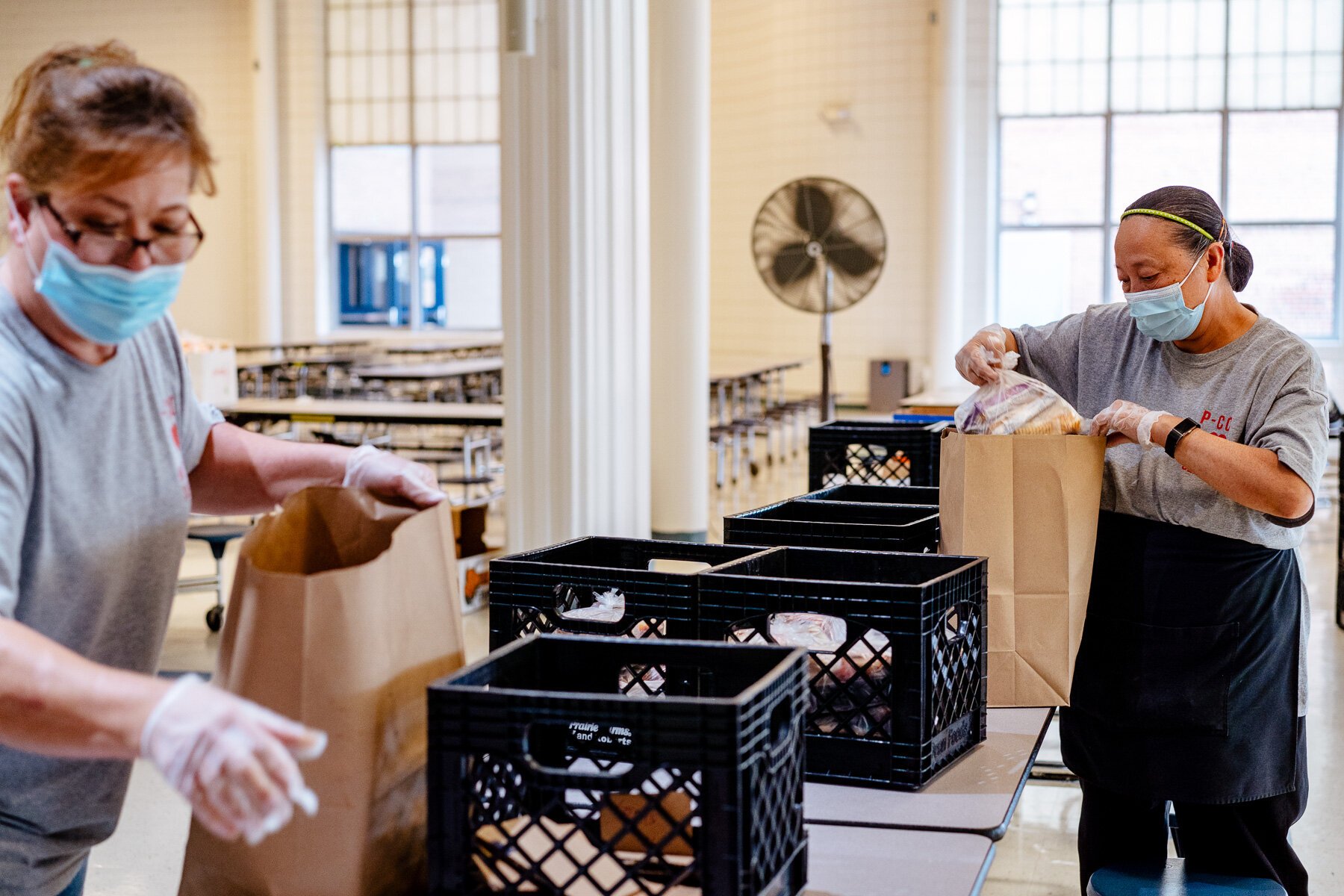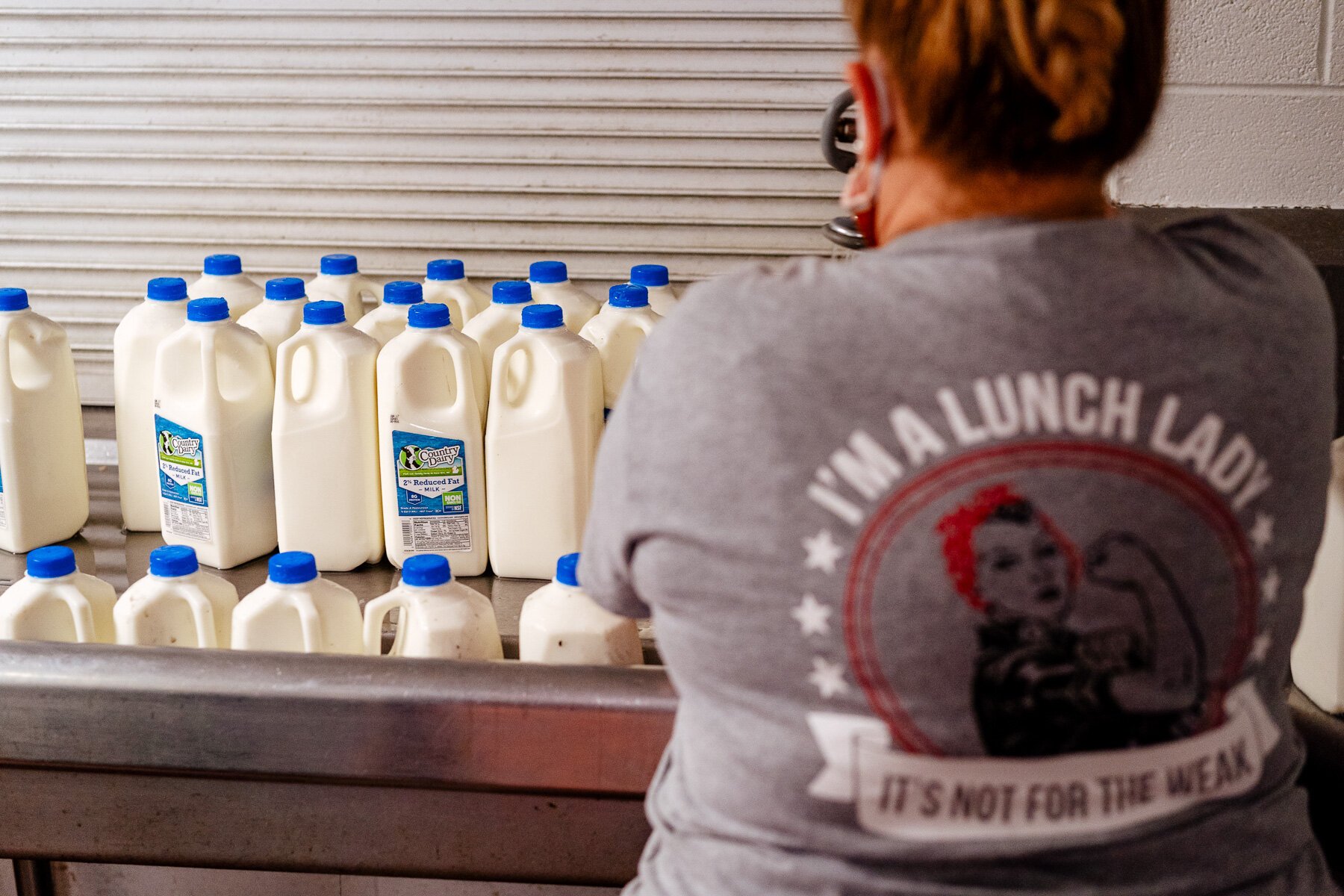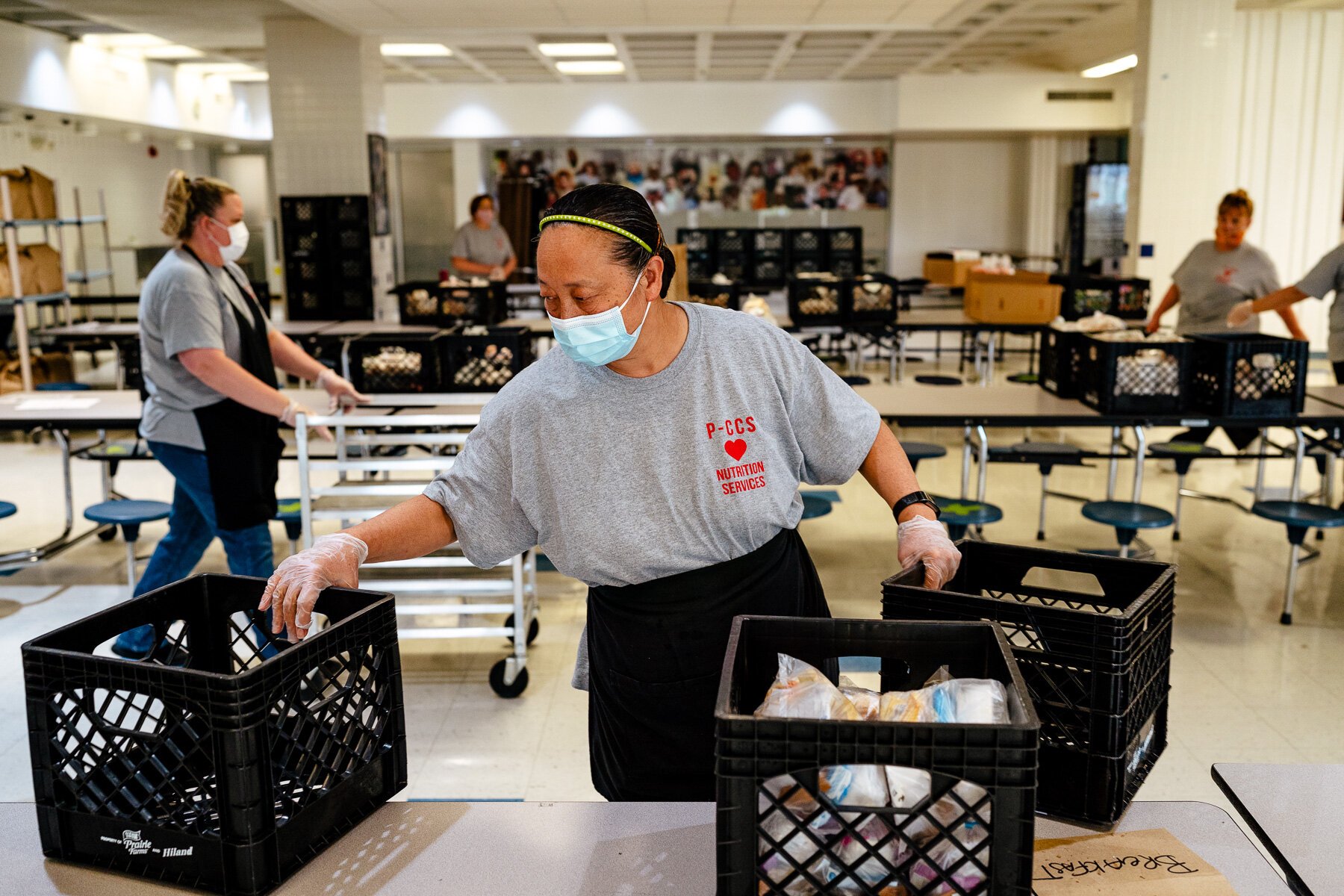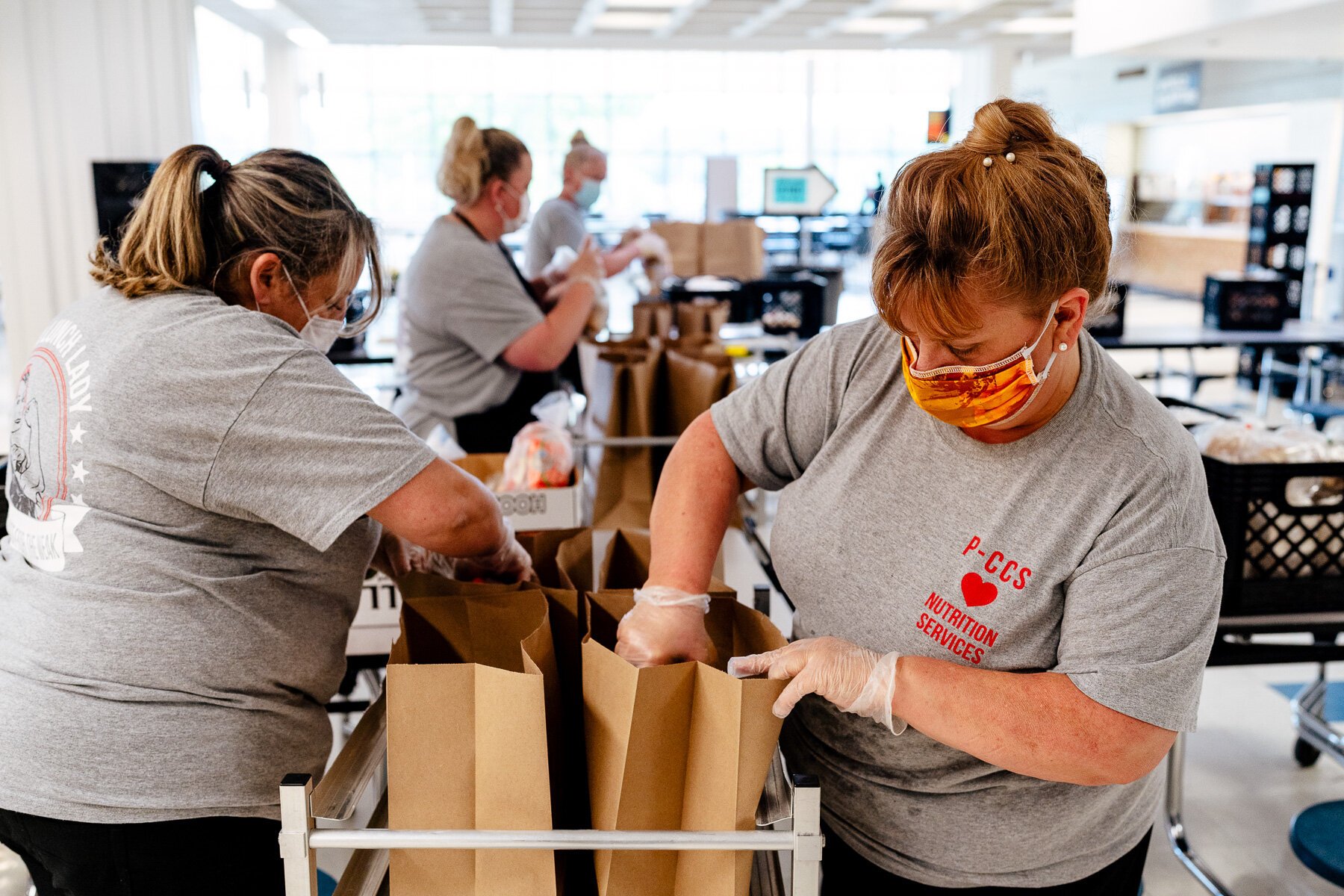Many Michigan education professionals are hoping that pandemic-prompted shifts inspire permanent changes.
This article is part of State of Health, a series about how Michigan communities are rising to address health challenges. It is made possible with funding from the Michigan Health Endowment Fund.
When COVID-19 stay-home orders went into effect in March 2020, Plymouth-Canton Community Schools’ (P-CCS) food service team made huge changes — and fast. Food service staff at all of the district’s 24 buildings, each of which has its own kitchen, transformed how they fed 18,000 students practically overnight.
P-CCS responded with an ever-evolving program that initially provided free breakfasts and lunches seven days a week via pickup sites at select school buildings. As students began returning to class on a part-time basis, they ate some meals at school and brought others home with them. Meal pickup locations remain open this summer.
“We do not have a central kitchen. We do not have a central warehouse. Everyone had run their own kitchen and cooked on site,” says Kristen Hennessey, P-CCS director of food service. “We had to reopen a whole new school district food service from scratch within 48 hours.”

When COVID-19 prompted shifts in how, when, where, and to whom school meals were served, many of Michigan’s schools responded with wildly successful meal programs. Hennessey and many other Michigan education professionals hope these shifts inspire permanent changes to federal school meal funding that could mean better nutrition for all Michigan students.
“Why is it that in school you can get a book, you can get transportation, but in order to eat you have to prove your income? Instead of an opt-in program, free meals should be an opt-out. Then you are taking the burden off that child standing in line,” Hennessey says. “How nice would it be for a family when if something changed, if they had a bad month financially, they could just tell their kids, ‘Go ahead and take free lunch today’? A well-fed child is a child who is ready to learn.”
Innovating to feed students
Both federal and state policy changes have allowed schools to expand their meal programs since the pandemic hit. Federal child nutrition program waivers allowed schools to innovate new ways to feed students outside of the lunchroom and extended federal meal dollars to all students, not just those meeting income guidelines. Thousands of Michigan families picked up free meals from distribution sites including schools, school bus stops, and apartment complexes. Summer Electronic Benefits to Children funded meals to students qualifying for free and reduced lunches when the 2020 school year ended.
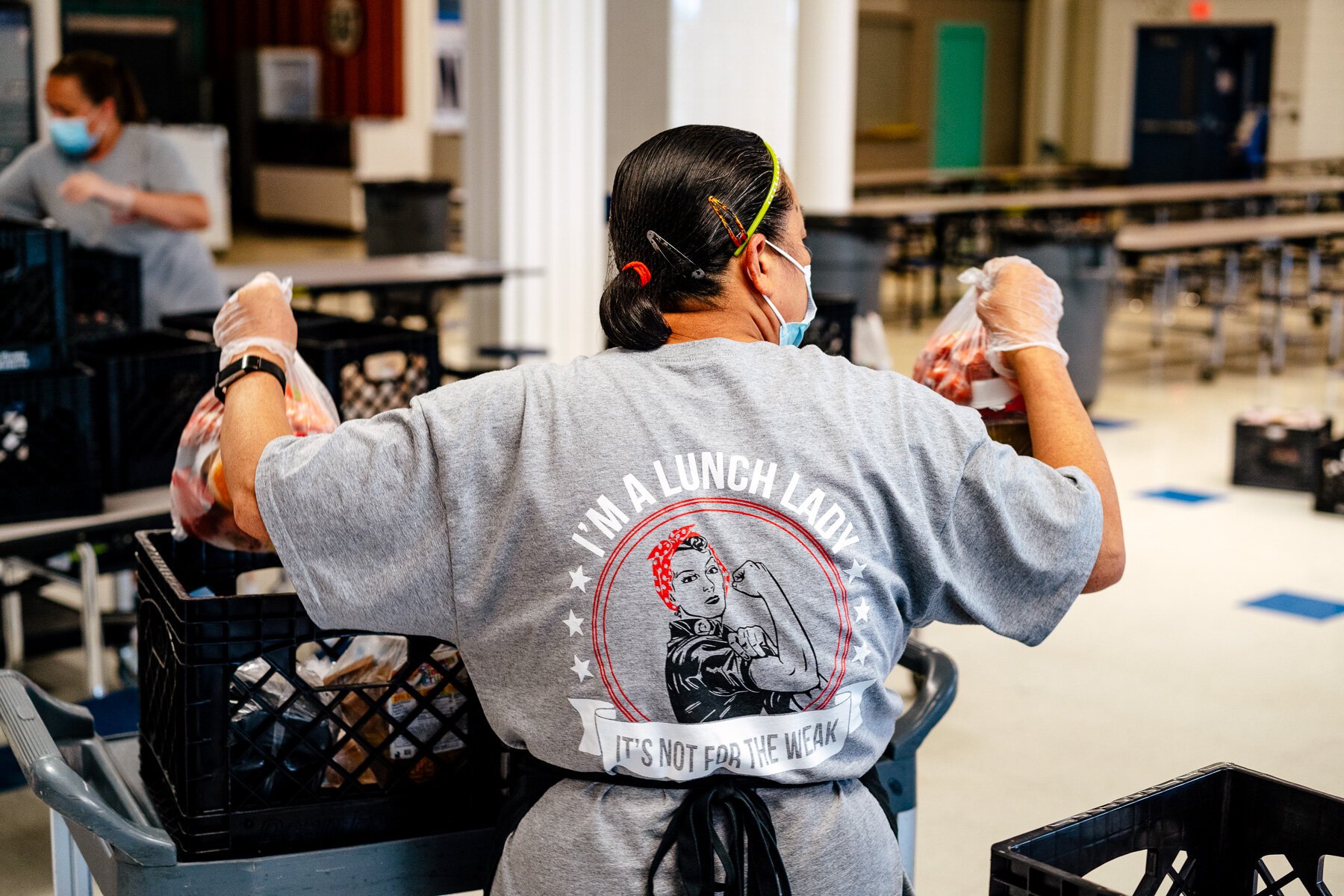
Because schools are required by law to provide meals for students, and virtual education options are most likely here to stay, Hennessey believes that P-CCS’ hybrid approach will continue after the pandemic has passed.
“We are coming back next year with a more simplified but better menu, more robust in quality but simpler in ingredients,” Hennessey says. “The kids are going to like it better and the nutritional quality is going to be higher.”

Macomb Intermediate School District (MISD) took an innovative approach to feeding students from its schools, which serve children with emotional or physical impairments. Schoolbuses retrofitted with thermal coolers delivered seven days’ worth of meals to students’ homes weekly. The 105 bus routes reach every corner of Macomb County, as well as portions of Wayne, St. Claire, and Oakland counties, where some of MISD’s 1,500 students live.
“In our population, there are parents who can’t leave their child. And even though we went back to face-to-face September 9, we still have families who have chosen to remain remote,” says Carolyn Thomas, food service consultant at MISD. “We’ll be running meal deliveries throughout the summer too. Many of our buildings run year-round.”
An extension of the federal waiver program will allow schools including P-CCS to distribute these meals again this summer. Education leaders at the state level say further extensions will only benefit Michigan children.
“The research has been very clear. The closer the child eats to a test, the better they do,” adds Diane Golzynski, director, office of health and nutrition services for the Michigan Department of Education. “These programs are designed to not only ensure nutrition for kids who don’t have meals at home to rely on but to ensure that they can be the best learners possible. Just as a teacher is taught how to assist with academics, our district food directors are there to teach healthy eating habits, the importance of meals and sharing meals with others, and the impact those meals have on the rest of their lives.”
Healthy meals all of the time
On March 25, Golzynski testified at a Senate Committee on Agriculture, Nutrition and Forestry hearing on “Child Nutrition Reauthorization: Healthy Meals and Healthy Futures.” To make the case that breakfast and lunch should be free for all students in all schools, she shared that eight out of 10 Michigan students qualifying for free or reduced-price meals ate breakfast at school every day before the pandemic. However, another 70,000 students who qualified for the programs were enrolled in districts that did not serve breakfast.
She gives two examples of these districts. One Michigan school district serving more affluent families balks at the extra effort it would take to make meals available to the 10% of its students (1,000 kids) who qualify for free or reduced meals. Another district, with 98% of its students meeting eligibility standards, does not want its community to think it is poor.
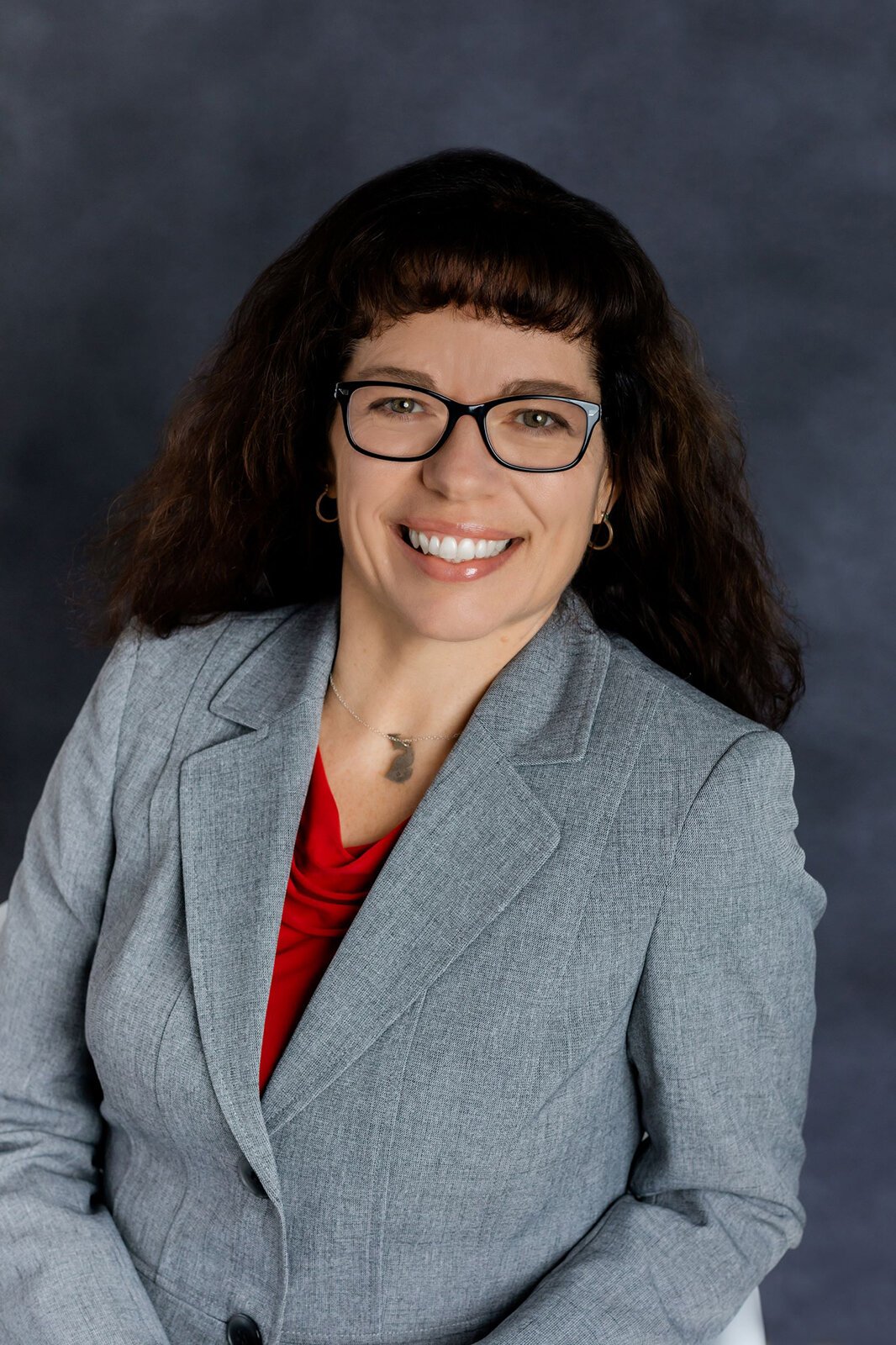
“As the adults who are responsible for those children, we must provide every tool available to us to safeguard their future success including nutritious meals,” Golzynski testified. “… As a result, we must provide a healthy breakfast at school in a manner which reduces stigma and increases the opportunities for children to participate, and not just on the day of the test but every day in which learning is a critical part of their day.”
In her testimony, Golzynski also noted that U.S. school meals’ strong nutrition standards are critical for introducing children to healthy foods and making sure that they have access to them. She shared that more Michigan students were saying “yes” to healthier foods, including fruits and vegetables. With a universal free breakfast and lunch program, all students would be guaranteed at least two healthy meals a day. Healthy nutrition would be as available as textbooks and teachers. Kids from families with income challenges would not face embarrassment. Immigrant families would not have to be afraid.
“One of the things the pandemic has taught us is that stigma is very real for everyone. The more we can take that stigma away, the better we can do serving our kids. During the pandemic, all meals were free to all children. Families have been able to participate who were not willing to do so before. They didn’t want anyone at school to know that they qualified,” Golzynski says. “Two, think of all the problems we have with ICE. Families did not want the government to know where they were.”
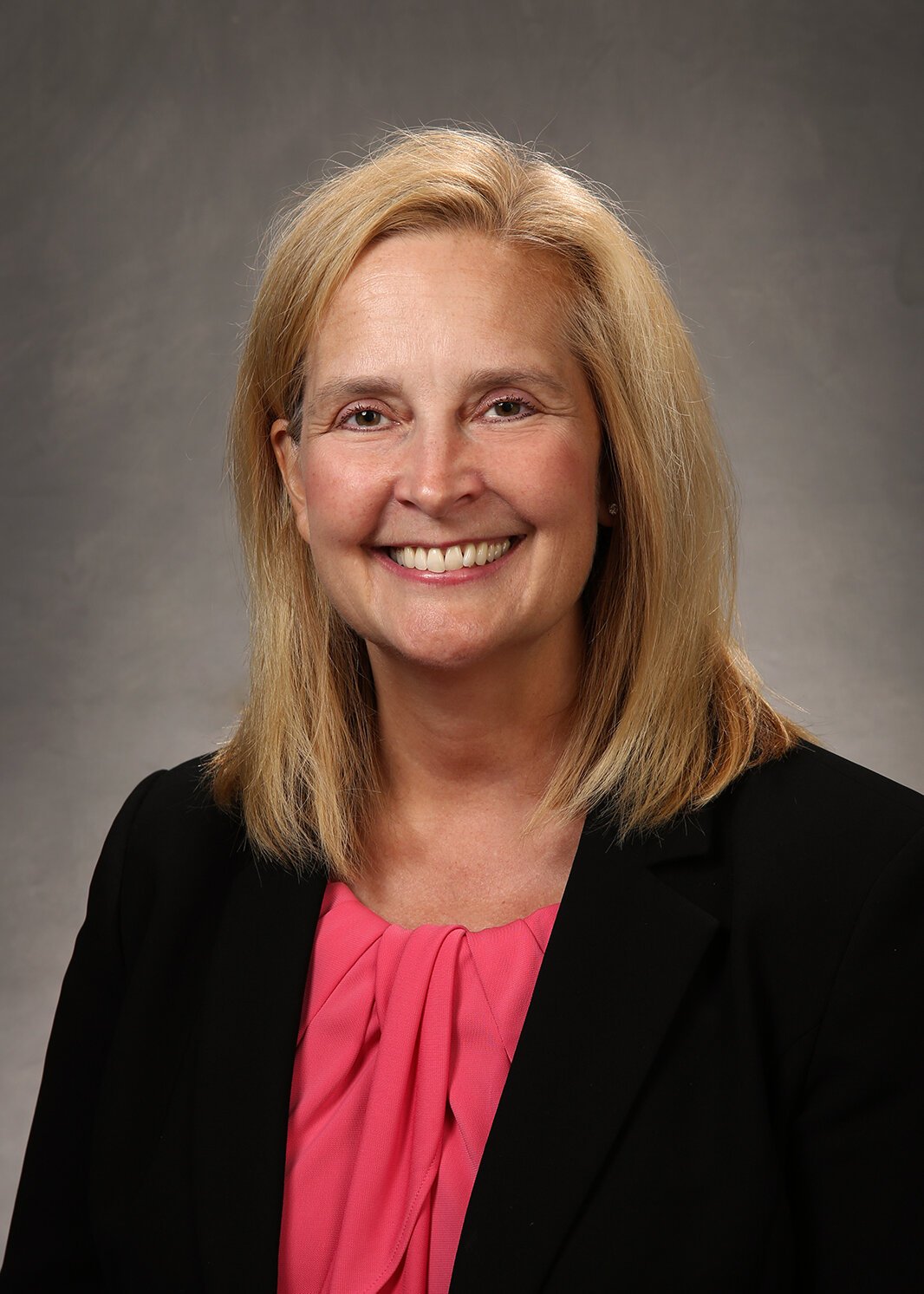
With universal free school meals, kids from families that do not qualify for SNAP or other food assistance would still be assured two healthy meals if their parents were not providing them, for whatever reason.
“When it’s universal, it removes all apprehension from the school administration,” says Laurie Solotorow, member of the state of Michigan’s Food Security Council. “It removes [the school’s] ability to say, ‘No, we’re not going to do that.’ It becomes part of the regular school day, and it is expected that administration and school staff will support that part of the school day.”
The administration and food service staff at P-CCS and MISD have no such apprehension. They are convinced that providing free meals to all students who want them should be as common as reading, writing, and arithmetic.
“Nutrition needs to be part of the educational day. Hungry children can’t learn. They can’t and they don’t. We need to make sure meals are an integral part of the education experience,” Thomas says. “We’re ready. We’ve been feeding all children regardless of their income level for 15 months and we will continue next year. The barriers we did have in coming up with these different food service models and making them work — that’s all over.”
A freelance writer and editor, Estelle Slootmaker is happiest writing about social justice, wellness, and the arts. She is development news editor for Rapid Growth Media and chairs The Tree Amigos, City of Wyoming Tree Commission. Her finest accomplishment is her five amazing adult children. You can contact Estelle at Estelle.Slootmaker@gmail.com or www.constellations.biz.
P-CCS photos by Nick Hagen. All other photos courtesy of the subjects.

